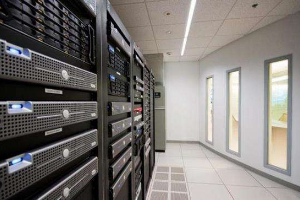What is the difference between vps and server? Vps and physical server are relatively common server types, each with its own advantages. Vps host and physical server are like the difference between a room and a building, in terms of speed, stability, security, etc. Still a little different. As far as renting is concerned, of course it is better to recommend a physical server.
What is the difference between a vps and a server?
The full name of vps is virtual private server, which is divided from a single physical server. A single physical server can be divided into dozens or hundreds of vps hosts. The advantages of vps hosts are simple operation, convenience, practicality and low cost, but vps hosts Performance, resources, and configuration are limited by physical servers.
A server refers to a physical server, also known as a bare metal host/server, which has physical equipment. The advantage of a physical server is that it has good performance and security, but at the same time, the rental cost is relatively high.

Which is better, vps or server rental?
As for building a website, there is no difference between renting a vps host or a physical server, because the vps host can also host the operation of the website very well, and needless to say, the physical server, since the vps host can accomplish things, the physical server can of course also Done easily. Without considering the cost, of course, renting a physical server is like renting a house. If you have a small budget, you can rent a room, and if you have a large budget, you can rent a whole suite.
How to choose vps and server?
In addition to considering the cost, users should also consider the performance, speed and stability of the website. As far as ordinary websites, such as corporate websites, blogs and other small and medium-sized websites, renting a VPS host can fully meet the normal needs. For large websites such as film and television websites, shopping malls, finance, games, etc., it is recommended to rent a server. Large websites have higher requirements for server configuration, and VPS hosts cannot fully meet them.

 EN
EN
 CN
CN








